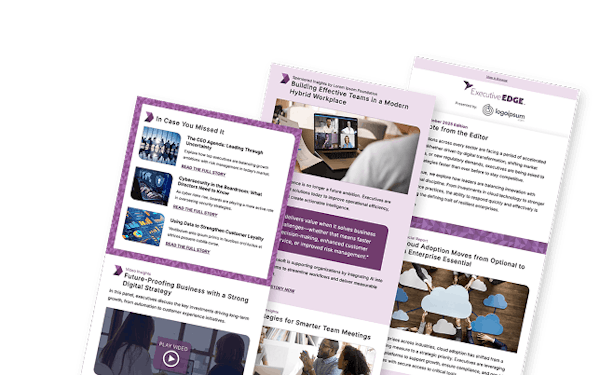Beyond Data Science: AI Fluency Required Across the Tech Stack
Key Highlights
- 78% of ICT roles now list AI technical skills in job requirements.
- 7 of the 10 fastest-growing ICT jobs are AI-centric (e.g., AI/ML engineer, AI governance).
- Skill gaps are especially acute in generative AI, LLMs, prompt engineering, AI ethics, and security.
- The Consortium pledges to reskill 95 million people globally with a playbook, glossary, and training resources.
As AI tools and systems become more embedded in every layer of technology, the line between “AI roles” and “tech roles” is vanishing. For executive teams managing IT, R&D, and digital transformation, this report stakes a clear claim: AI fluency is now table stakes for information and communications technology (ICT) talent, not a sidebar. Organizations that fail to internalize AI in roles will fall behind in agility, innovation, and retention.
This evolution is not just about adding AI engineers. It’s about transforming how all teams think, optimize, and collaborate. Leadership must build frameworks for continuous skill infusion, tie AI metrics into core performance goals, and redesign talent paths around emerging hybrid roles. The excerpt below captures how pervasive the shift already is across 50 ICT role profiles:
As reported in “ICT in Motion: The Next Wave of AI Integration” on ISE:
“The AI Workforce Consortium released its second study, "ICT in Motion: The Next Wave of AI Integration," which finds that AI roles now dominate tech market growth. Led by Cisco, the Consortium is a private sector collaboration that includes industry leaders Accenture, Cornerstone, Eightfold AI, Google, IBM, Indeed, Intel, Microsoft and SAP.
Based on extensive job posting data from Cornerstone and Indeed between July 2024 to June 2025 across G7 countries, including Canada, France, Germany, Italy, Japan, the United Kingdom and the United States, this latest edition arrives at a pivotal moment as AI continues to reshape economies, societies and global governance. Building on last year's inaugural report, the 2025 analysis examines 50 ICT and specialized support roles, offering new insights into emerging AI-specific jobs, regional job creation and the skills workers need to remain competitive.
2025 Report Findings:
- AI Skills are Now Pervasive for Tech Jobs: 78% of the job roles analyzed include AI skills, highlighting a shift in role requirements across the G7.
-
AI Roles Dominate Technology Job Market Growth: 7 of the 10 fastest-growing ICT roles are AI-related, including AI/ML Engineer, AI Risk & Governance Specialist and NLP Engineer.
-
AI Ethics and Governance Skills Remain Critical: Demand for skills in AI Governance is +150% and AI Ethics +125%, reflecting the need for expertise at the intersection of technology, law and ethics.
-
Critical Technical Skills Deficit and Rising Importance of Human Skills: The skills deficit has reached critical levels in areas such as generative AI, large language models (LLMs), prompt engineering, AI ethics and AI security, while human skills like communication, collaboration and leadership are increasingly prioritized for responsible technology adoption.
-
Surge in Specialized AI Skills: The AI landscape is quickly shifting from chatbots to agents, driving demand for specialized skills, including AI security +298%, foundation model adaptation +267%, responsible AI +256% and multi-agent systems +245%.
-
Accelerated AI Job Growth Driven by Tech Hubs: Silicon Valley leads with a 156% increase in AI jobs, followed by London and Toronto, underscoring their status as global AI powerhouses, while Manchester, Lyon and Vancouver are emerging hubs with over 70% AI job growth.
‘As AI reshapes our world and work, people remain at the center," said Francine Katsoudas, Chief People, Policy & Purpose Officer, Cisco. "This year's report makes clear that AI skills open exciting new doors, but it's the combination of technical expertise and human strengths like collaboration and leadership that will truly shape a brighter future. We are committed to building a workforce that is ready for this new era of growth, and to give people everywhere the opportunity to learn, contribute and benefit.’
Collectively, Consortium members have committed to upskilling and reskilling 95 million individuals worldwide over the next decade. In support of this goal, the Consortium is introducing new resources to empower workers and organizations.”
Continue reading “AI Integration: 78% of ICT Roles Now Include AI Technical Skills” on ISE, based on the AI Workforce Consortium’s ICT in Motion report.
Why It Matters to You
For executive leadership, this is a wakeup call: Talent risk now lives at the intersection of AI and domain fluency. You can no longer treat AI as an isolated function or center of excellence. If 78% of ICT roles now expect AI skills, the gap between teams with AI-integrated DNA and those without will widen rapidly.
This isn’t just about hiring more engineers. It’s about evolving your workforce architecture, redefining role expectations, embedding modular reskilling, enabling cross-discipline AI fluency, and elevating ethics, governance, and human judgment alongside technical ability. Organizations that fail to adapt risk stagnating as the AI-literate rise.
Next Steps
- CEO/CTO: Conduct a role audit: map each ICT role against required AI fluency and current skill gaps.
- HR/Talent Development: Launch an AI core curriculum (technical + ethical + communication) for all ICT teams.
- IT/Engineering Leadership: Institute rotational “AI lift” programs by pairing non-AI talents with AI projects and mentors.
- Risk/Governance: Create review and oversight functions for AI adoption, especially in sensitive roles like governance, security, and model deployment.
- Strategy/Finance: Fund cross-skill development as capital investment — tie reskilling outcomes to performance metrics and ROI.
Quiz
Make smart decisions faster with ExecutiveEDGE’s weekly newsletter. It delivers leadership insights, economic trends, and forward-thinking strategies. Gain perspectives from today’s top business minds and stay informed on innovations shaping tomorrow’s business landscape.

